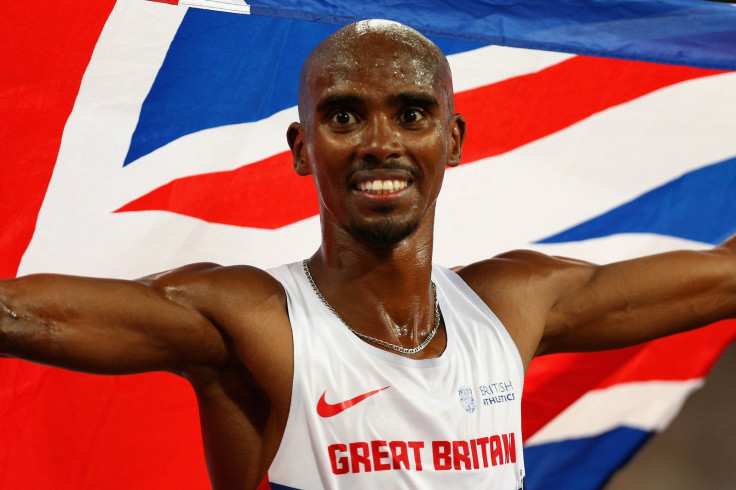Mo Farah and Rafael Nadal among latest 26 athletes to have Wada data leaked by hackers
Hackers have released a fourth batch of medical documents.

The suspected Russian cybercrime group known as Fancy Bears has released a fourth batch of documents stolen from the computer systems of the World Anti-Doping Agency (Wada). The latest disclosure names 26 superstar athletes including Mo Farah and Rafael Nadal.
Like previous data dumps, all published on the open internet for the world to see, the leak consists of therapeutic-use exemptions (TUEs) which are carefully regulated by sporting officials and provided to athletes suffering from genuine medical conditions.
In the wake of the Rio Games 2016, the Wada leaks have implicated a slew of household names. In the latest trove of confidential medical files, athletes include golfer Justin Rose, tennis star Nadal, gymnast Lauren Hernandez and rower Helen Glover.
Home countries of the impacted athletes include Great Britain, Denmark, Canada, the USA and Spain.
Upon inspection, many of the drugs in the documents are steroid based anti-inflammatory medications or asthmatic treatments – including prednisolone, triamcinolone and salbutamol.
Despite claims of the hacking group there is no evidence that any of the sporting figures were involved in doping or illegality.
In the case of Farah, 33, the leaked medical information indicates that he was cleared for use of triamcinolone in 2008 and was also administered a morphine drip and Vicodin after collapsing following a training run in July 2014. He has previously told media that he had only been granted the use of one TUE.
"Like everyone in Team GB, he was notified about the potential release of private medical data," said a spokeswoman for Farah last week. "While he believes this sort of information shouldn't be published without an individual's permission, he isn't concerned about anything they might release about him."
The hacking collective believed to be responsible for the ongoing releases, known as Fancy Bears, or APT28, is believed to be linked to Russian intelligence. Evidence suggests it is the same collective that infiltrated the Democratic National Committee (DNC) and other political groups in the US.
Undermining the system
The release of private medical information has been roundly condemned by anti-doping groups around the world. "It is incomprehensible that someone would use athletes' personal information to try to undermine the global anti-doping system," said Nicole Sapstead, chief executive of the UK anti-doping agency on 16 September.
"These athletes have obtained TUEs through a robust and independent system. The use of TUEs is not a doping offence, and all of these athletes have legitimately applied for, and been granted, medical support within the anti-doping rules."

After the initial leaks were unleashed onto the web, Travis Tygart, chief executive of the United States Anti-Doping Agency (USADA) said it was "unthinkable" that hackers would attempt to smear the records of such well-known athletes and defended the use of TUEs. "In each of the situations, the athlete has done everything right in adhering to the global rules for obtaining permission to use a needed medication," he said in a statement.
While the use of TUEs do not indicate foul play, some commentators are now calling out their widespread use. "The way the rules are, it allows for that grey zone," said Dr John Dickinson, a respiratory expert at the University of Kent, as reported by The Guardian.
"It allows for that 1% of athletes with the help of a medical doctor to look at the system and say: 'You know what, we can get you that drug.' There is no clear evidence, but the rules can allow that to happen."

Previously, a much-publicised investigation commissioned by Wada uncovered Russian state-sponsored doping. In a report published by Professor Richard McLaren, the FSB, the Russian Ministry of Sport (MofS) and the Russian Anti-Doping Agency were all implicated in the scandal.
Speaking recently, Russian President Vladimir Putin denied the Fancy Bears hacking team are linked to the Kremlin but branded the ongoing disclosures as "of interest to the international public".
He said: "We don't support what hackers have been doing, but their findings cannot but be of interest to the international public, sports public first and foremost.
"Very many questions arise. Healthy athletes legally take medications outlawed for others, while people, who obviously suffer from grave illnesses and disabilities, are barred from participation in Paralympic Games on sheer suspicion."
© Copyright IBTimes 2025. All rights reserved.






















